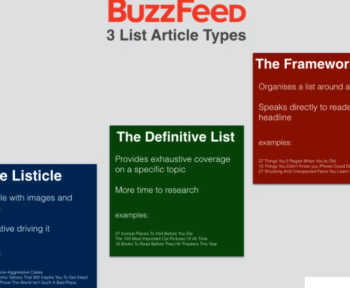Table of Contents
What is CRM?
Customer Relationship Management or CRM is a strategy for maintaining all relationships within the organization and its interactions with potential and existing customers. The CRM system helps companies stay in touch with customers, streamline processes and improve profitability.
When we talk about CRM, we usually refer to the CRM system, a tool used for contact management, sales management, productivity, and more. The goal of the CRM system is very simple: to improve all the interactions that support your business. In fact, CRM Solutions can help you deliver a great customer experience throughout their life cycle on every interaction from marketing, sales, e-commerce, and customer service.
What do general people understand of the CRM concept?
CRM helps customers focus on the company’s relationships with individuals, including customers, customer service users, colleagues, or vendors.
When people talk about CRM, they refer to one of three concepts:
CRM as technology: It is a technology product, often used by teams in the cloud to record, analyze, and report on business and customer interactions. Also known as CRM solution or system.
CRM Strategy: This is the organization’s philosophy of how relationships should be maintained with customers and opportunities.
CRM as a Process: Think of this concept as a system adopted by the company to develop and maintain relationships.
What does CRM software do?
CRM software records customer contact information such as email, phone, website, social media profiles, etc. You can also enter recent news about the company’s activities, as well as other information such as store details and customer preferences regarding communications.
CRM systems maintain this information to provide you with a complete record of individuals and companies so that you can better understand their relationships over time.
CRM software enhances customer relationship management by creating a comprehensive view of the customer by capturing their interactions with the business and displaying the information needed for better customer interactions.
Why is CRM important?
CRM allows the business to further enhance its relationships with customers, customer service users, colleagues, partners and, vendors.
Building good relationships and tracking leads and customers is key to customer acquisition and retention – this is the concept behind CRM. You can see it all in one place: a simple customizable dashboard that shows you the customer’s past history, the status of their orders, pending customer service issues, and more.
By 2021, Gartner predicts that CRM technology will have the highest performance in terms of enterprise software costs. If your company plans to stay in the market in the future, you need to know that you need a strategy for it. For forward-thinking companies, CRM provides the framework for that strategy.
How do the various functions of the company benefit from the use of CRM?
Although the importance of CRM has traditionally been linked to sales and marketing tools, it can have some great benefits in other areas such as customer service, human resources, and customer service. Human resources, supply chain, and partner management.
Here’s how different business functions can benefit from using CRM:
Sales teams can use CRM to better understand the sales process:
For example, sales managers can access credible information about how each team member is progressing towards their sales goals and see how sales teams, products, and campaigns work on an individual level.
Sales agents benefit from less administrative work, more in-depth understanding of their customers and more time spent on sales, and less time to enter data.
Customer service teams can effectively control interactions across channels:
A customer may raise the issue on a channel such as Twitter or Facebook but may switch to email, phone, or live chat to resolve it privately.
Without a simple platform for customer interaction, communication loses volumes of information, resulting in poor customer feedback.
Partner, procurement, and supply chain management teams can better manage relationships:
They can track meetings with vendors and partners, record requests made, add helpful notes, schedule follow-ups and stay in the loop for planned next steps.
Reporting allows companies to compare suppliers’ capacity and manage the entire supply chain more efficiently.
Marketing teams can use CRM to make forecasting easier and more accurate:
The marketing teams can gain clear visibility for every opportunity or candidate and map out the overall customer experience from trial to sales, giving them a better understanding of the ongoing sales process or potential future work.
It is also possible to include information about activity on customers’ social networks: what they like and dislike, as well as their feelings about specific brands and companies.
You can use CRM to speed up the recruitment process and track employee performance:
CRM can help you improve HR functions. H. By accelerating the onboarding process, automating the candidate management process, analyzing resource requirements and identifying skill gaps, and supporting the achievement of staff retention goals.
Think about how convenient it would be to integrate all your data streams from sales teams, customer service staff, vendors, and social media and translate it into actionable business insights.
The CRM platform allows you to manage the flow of this information across different channels without losing track, with a focused focus on sales teams, customer service, marketing, and more.
What are the advantages of CRM?
By collecting and managing data about customer interactions, making it accessible and actionable to all, and facilitating its subsequent analysis, CRM offers a wide variety of benefits and advantages.
The advantages of CRM include:
1. Improved contact management
2. Cross-team collaboration
3. Increased productivity
4. Strong sales management
5. Accurate sales estimate
6. Reliable reporting
7. Better sales metrics
8. Increased satisfaction and customer retention
9. Driving ROI from Marketing
10. Rich products and services
If You really liked our work then don’t forget to support us by sharing and commenting. Thank You
Other interesting reads?
What is a sales funnel? – Introducing how to create content for attracting customers
What is Conversational Marketing? Future marketing that shines in the personalized era
EARNING ONLINE IN 2022: 20 IDEAS TO SUCCEED SERIOUSLY





